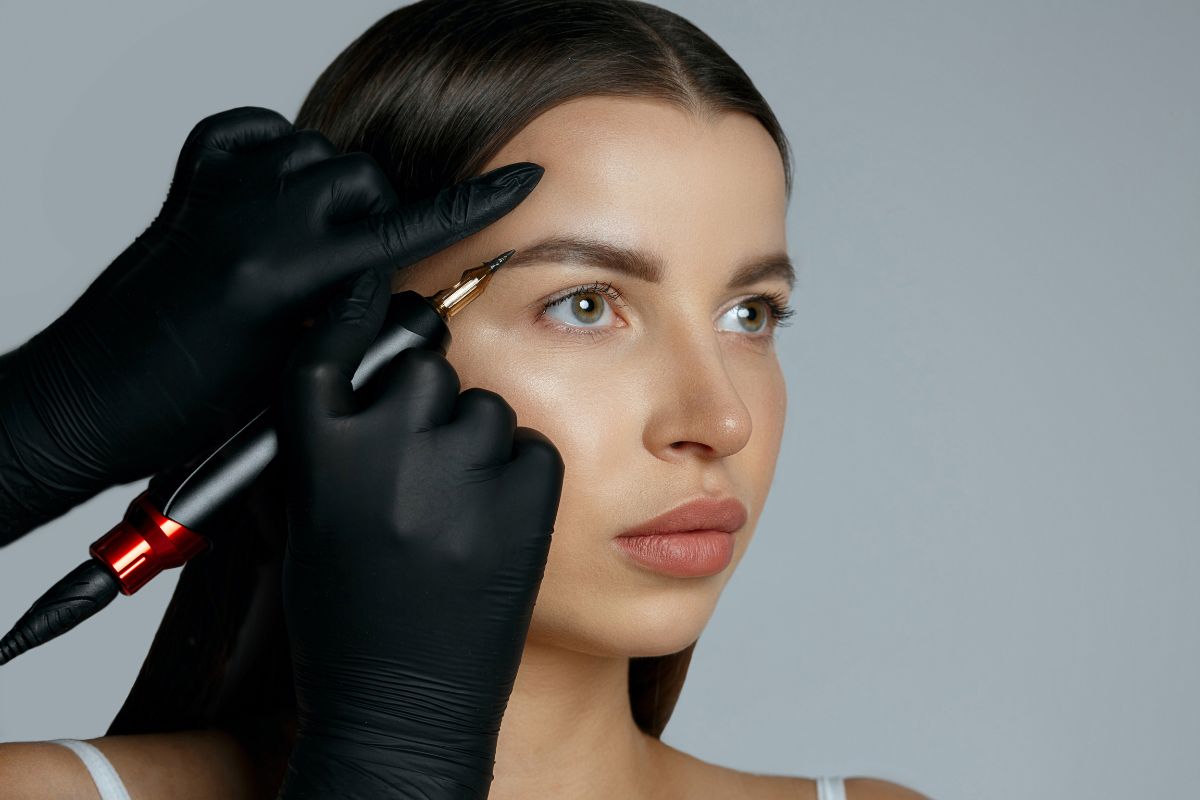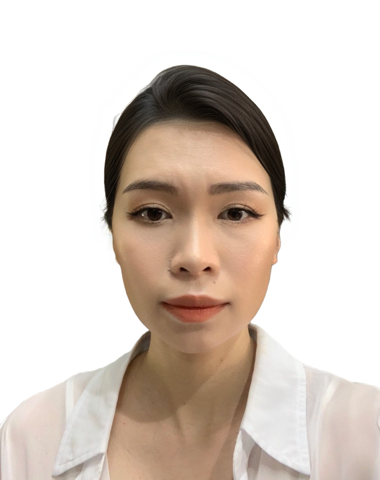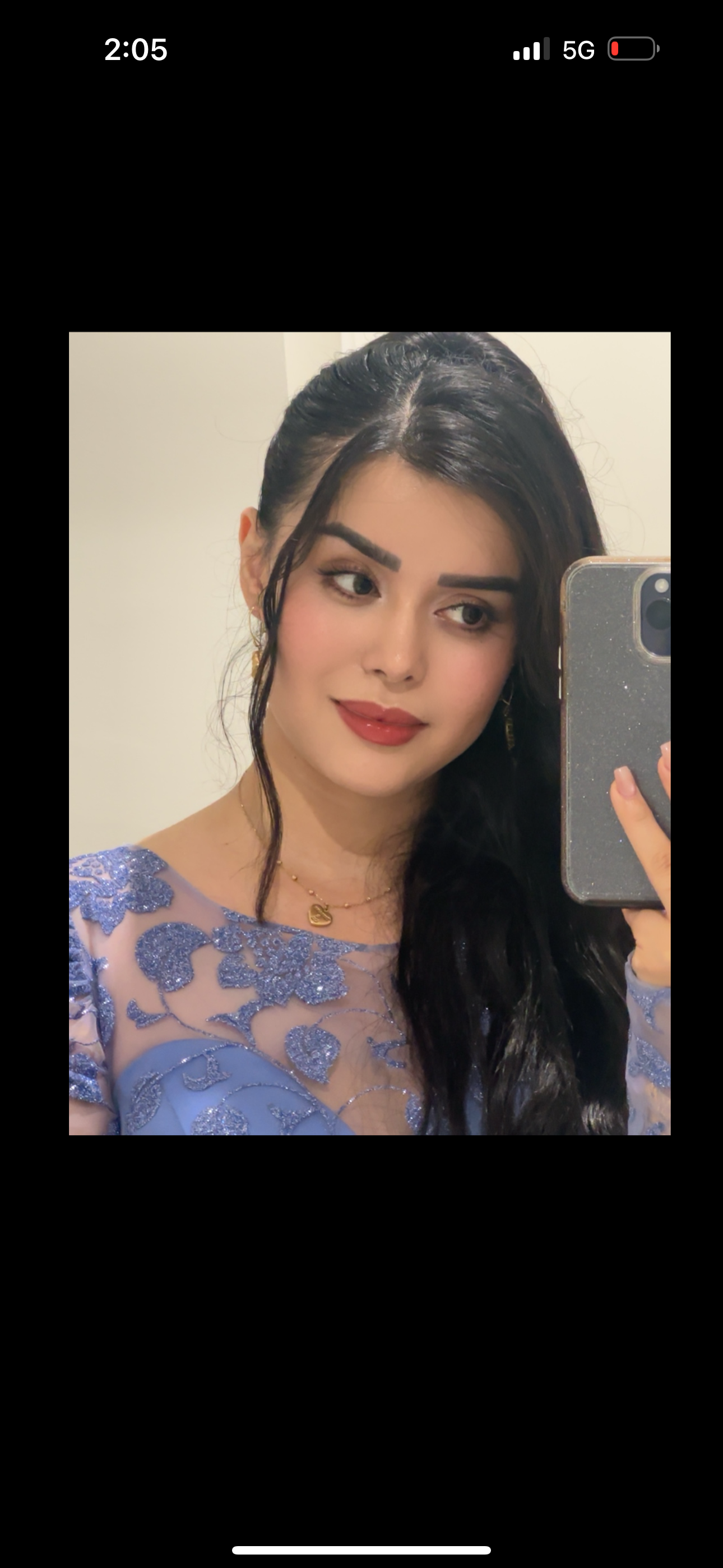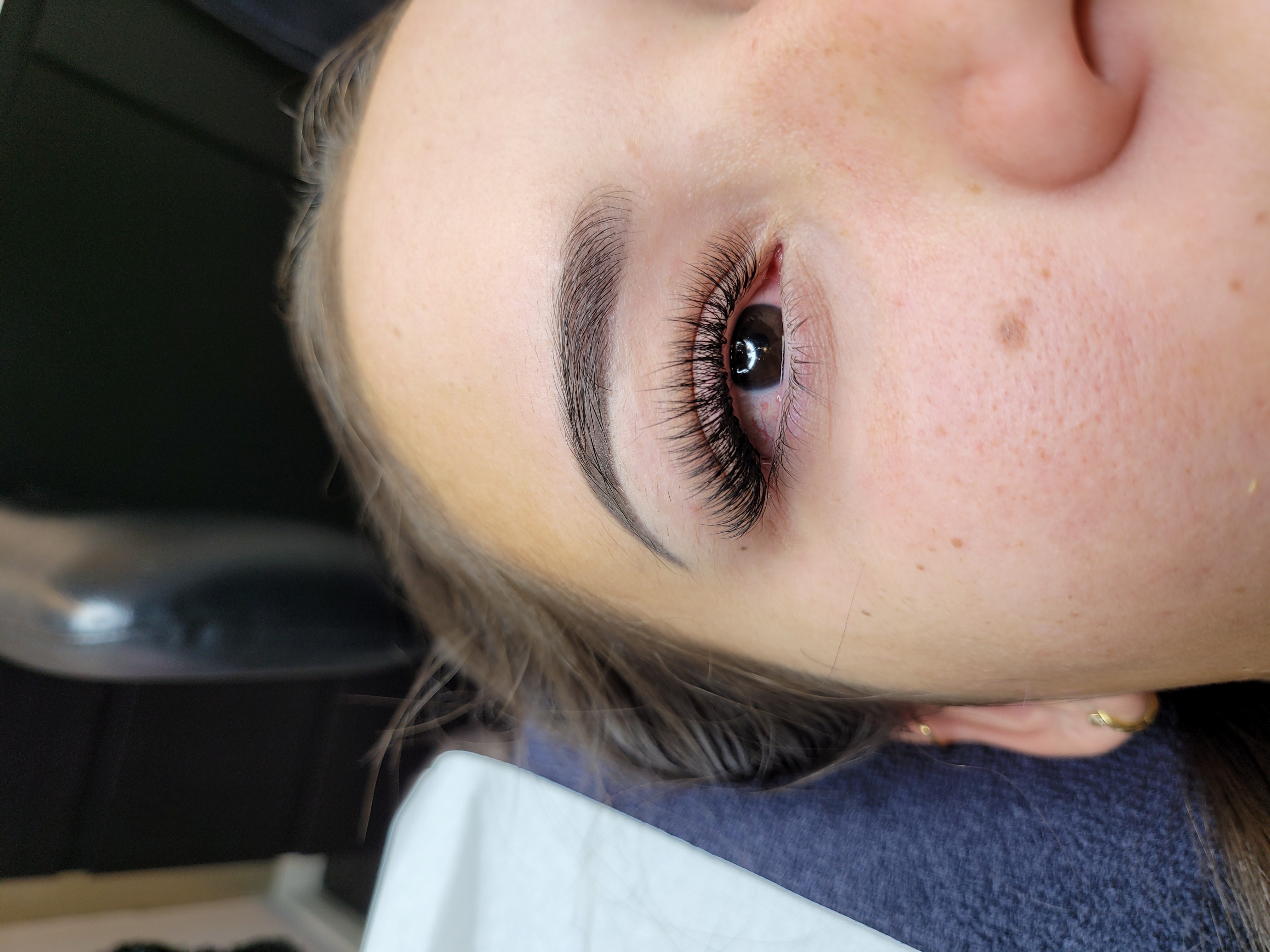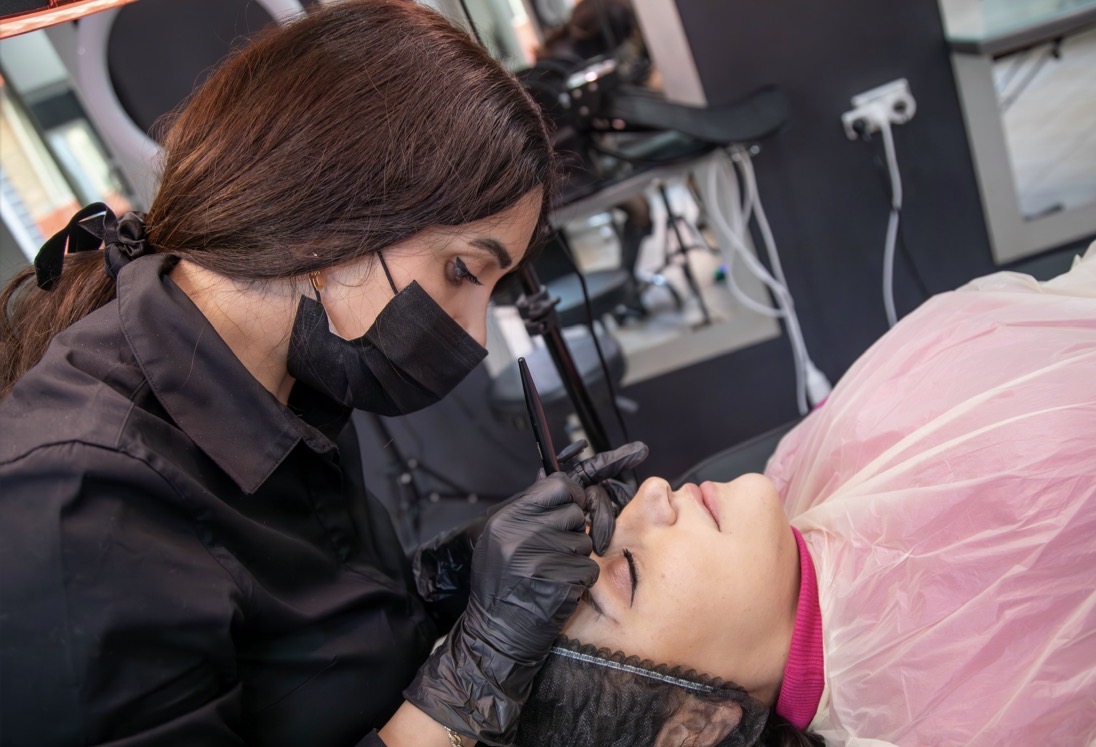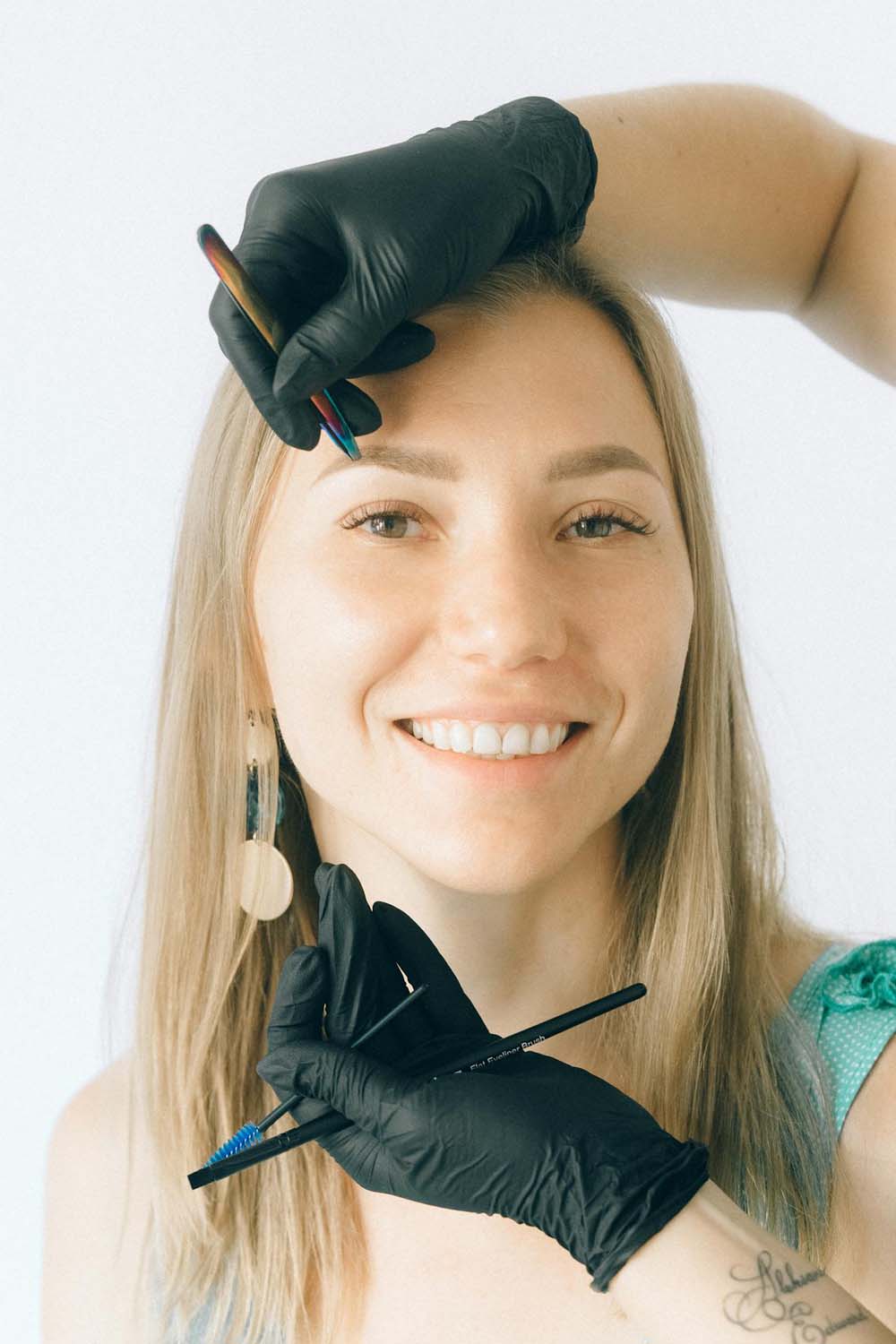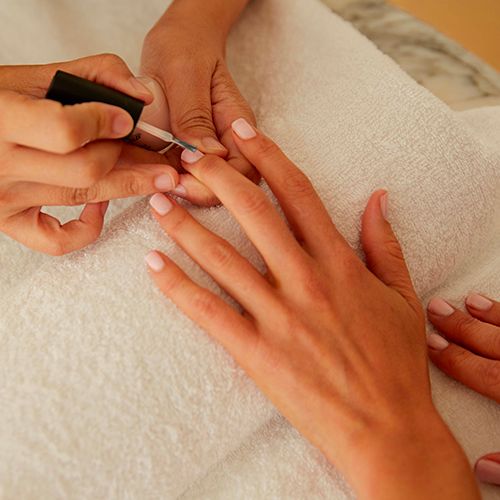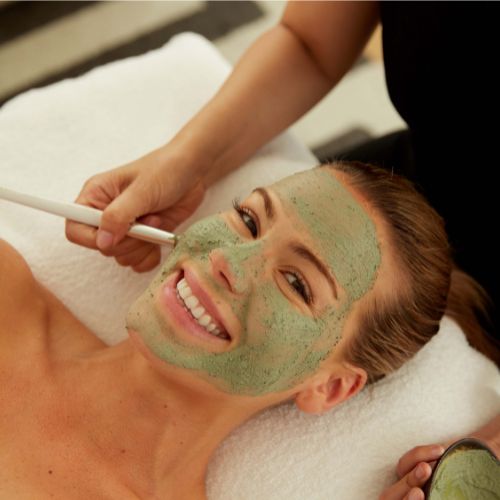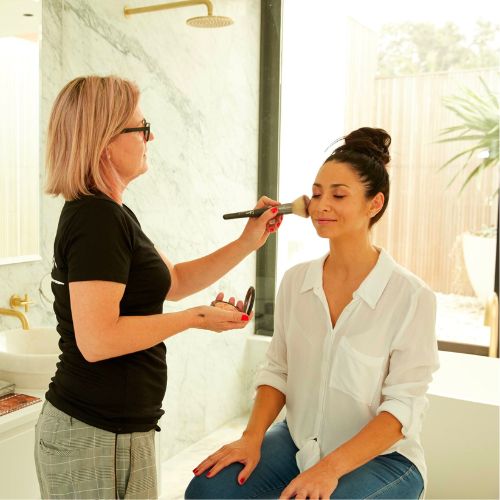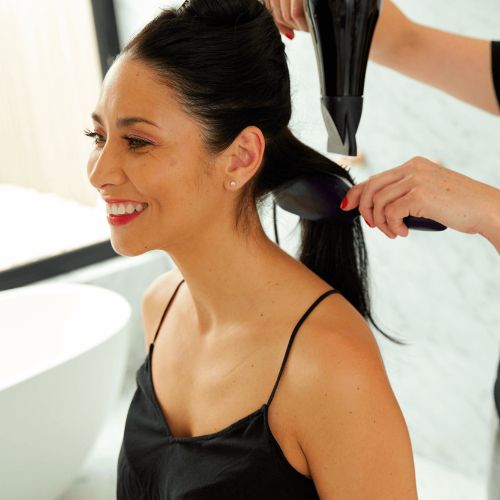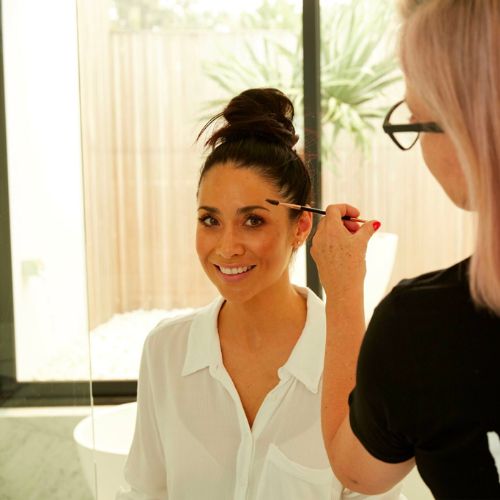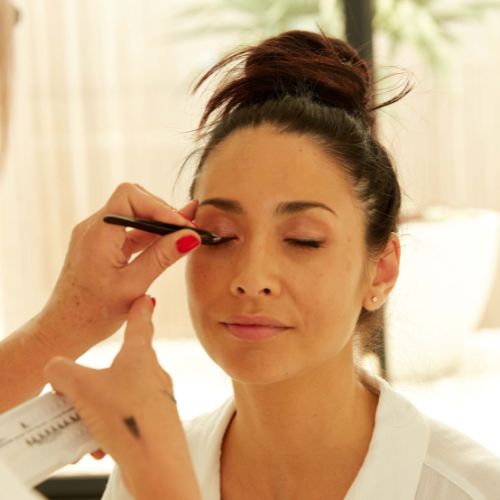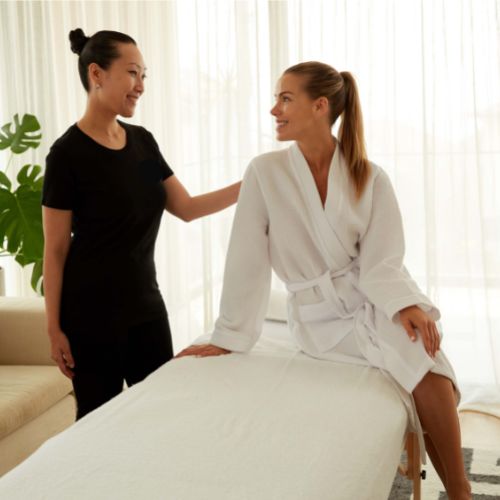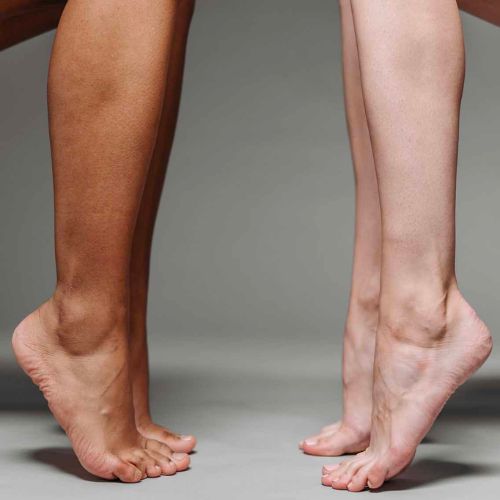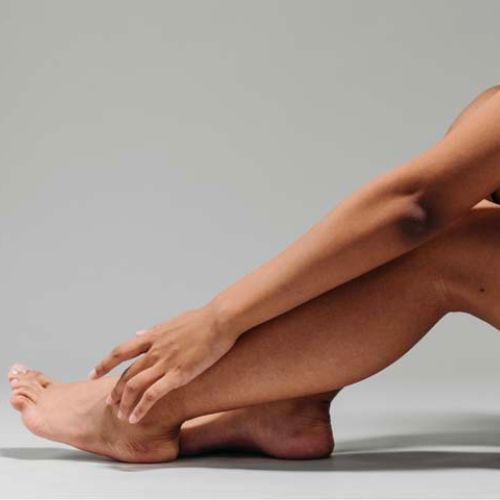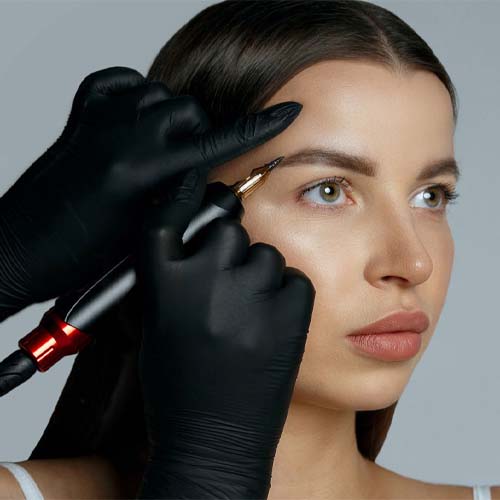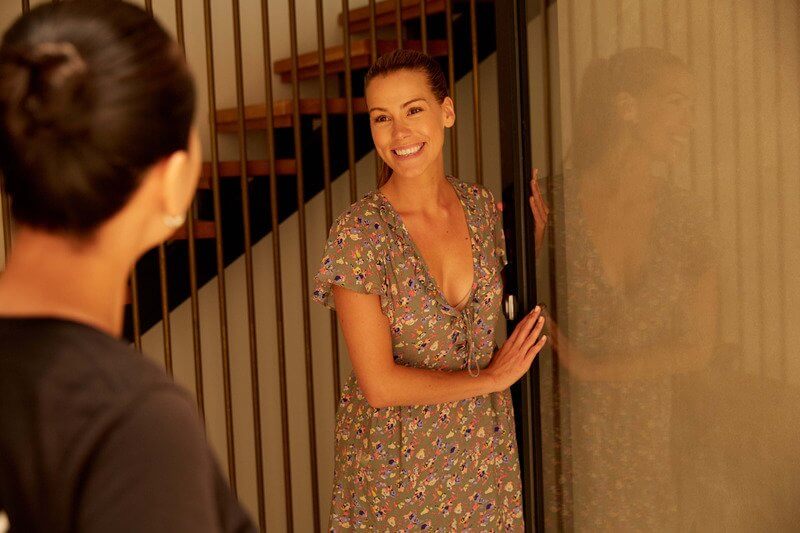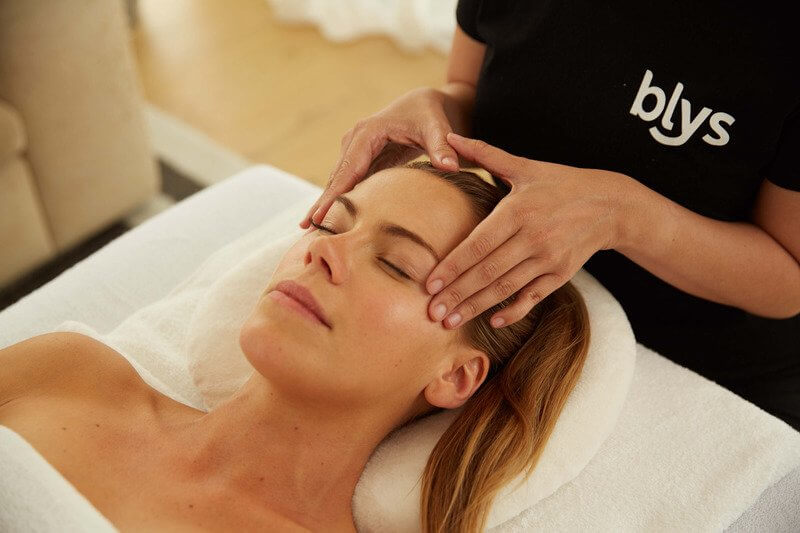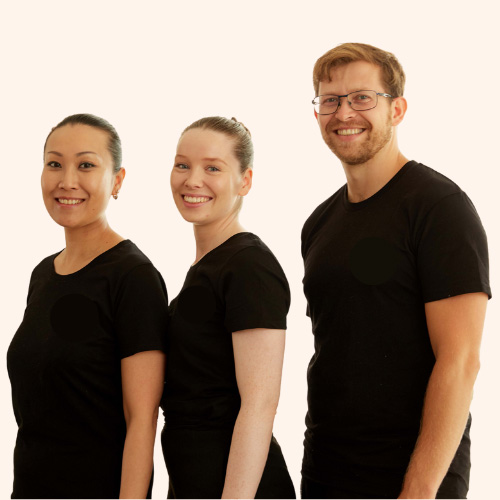Frequently Asked Questions
How is cosmetic tattooing done?
Cosmetic tattooing is done by using a small, handheld device or machine with a fine needle to implant pigment into the skin’s dermal layer. The process begins with a consultation to choose the right shape, color, and style that suit your preferences and facial features. A numbing cream is applied to minimise discomfort, and the technician carefully maps out the design on the skin.
Once approved, the pigment is applied using precise, gentle strokes or shading techniques, depending on the area being treated, such as eyebrows, lips, or eyeliner.
Is cosmetic tattooing permanent?
Cosmetic tattooing is considered semi-permanent. The pigments used in cosmetic tattooing are designed to fade over time, typically lasting one to three years, depending on factors like skin type, lifestyle, and aftercare.
Unlike traditional tattoos, which use ink that penetrates deeper into the skin, cosmetic tattoos use pigments that sit closer to the surface, allowing them to fade gradually and naturally. Touch-up sessions can help maintain the desired look as the pigment lightens over time.
Does cosmetic tattooing hurt?
Cosmetic tattooing involves some level of discomfort, but it is generally well-tolerated.
Before the procedure, a numbing cream is applied to minimise pain and make the experience as comfortable as possible. The sensation varies depending on individual pain tolerance, the area being treated, and the technique used. Most people describe it as a slight scratching or tingling sensation rather than intense pain.
After the procedure, there may be some mild sensitivity or swelling, which usually subsides within a few days.
How long does the cosmetic tattoo procedure take?
The cosmetic tattoo procedure typically takes one to three hours, depending on the area being treated and the complexity of the design. This time includes a consultation to discuss your desired look, choosing pigment colors, mapping out the shape, and the actual tattooing process.
Larger or more detailed areas, such as lips or a combination of treatments, may take longer, while smaller areas like eyeliner or eyebrows are usually quicker.
How long do cosmetic tattoos last?
Cosmetic tattoos generally last between 1 to 3 years, depending on factors such as skin type, lifestyle, and maintenance. While most fade gradually over this period, there have been cases where cosmetic tattoos, like brow or lip tattoos, have lasted for more than 20 years.
Proper care and periodic touch-ups can help extend their longevity and maintain the desired look.
Is cosmetic tattooing safe?
Yes, cosmetic tattooing is generally safe when performed by a qualified and experienced professional in a clean, sterile environment.
Blys works with a network of skilled cosmetic tattoo specialists who come to you, ensuring a convenient and comfortable experience. These professionals follow strict hygiene practices and use pigments designed specifically for cosmetic use.
Can I have an allergic reaction to cosmetic tattooing?
While rare, it is possible to have an allergic reaction to cosmetic tattooing. Some individuals may be sensitive to the pigments or numbing agents used during the procedure. Symptoms of an allergic reaction can include redness, swelling, itching, or irritation at the tattoo site. To minimise the risk, your cosmetic tattoo specialist will conduct a patch test before the procedure to check for any potential allergic reactions.
Blys works with a network of experienced professionals who will guide you through the process and ensure your safety and comfort. If you experience any unusual reactions, it’s important to seek medical advice promptly.
Who is suitable for cosmetic tattooing?
Cosmetic tattooing is suitable for individuals looking to enhance their features with cosmetic eyebrow tattoos, eyeliner tattoos, or cosmetic lipstick tattoos. It’s ideal for those seeking a low-maintenance beauty routine or wanting to improve the appearance of areas like eyebrows, eyes, or lips.
However, keep in mind that cosmetic tattooing is not suitable for everyone. If you are pregnant, nursing, have blood disorders, major health conditions, or skin allergies, it is advisable to consult with your doctor first before undergoing the procedure.
Can I wear makeup straight afterward?
No, it’s not recommended to wear makeup immediately after cosmetic tattooing, Your skin needs time to heal, and applying makeup too soon can irritate the treated area or cause infections.
After the procedure, you should follow you technician’s aftercare instructions, which typically include avoiding makeup for at least 24-48 hours. For eyeliner tattoo, avoid mascara.
Also, refrain from using harsh cleansers or skincare products for 7-14 days or until the area has peeled. his gives your skin a chance to heal properly and ensures the best results.
What is feathering?
Feathering is a technique used in cosmetic tattooing, particularly for eyebrows, to create a natural, soft, and textured look. It involves using fine, hair-like strokes that mimic the appearance of real eyebrow hairs. This technique blends seamlessly with your natural brows, enhancing their shape and definition without looking overly bold or artificial. It provides a more subtle and natural finish compared to solid, block-style tattoos.
How will cosmetic tattooing or microblading make me look younger?
Cosmetic tattooing or microblading can make you look younger by enhancing your facial features and creating a more defined, refreshed appearance. For example, eyebrow tattoos or microblading can give the illusion of fuller, more youthful brows, lifting the eyes and framing the face.
Eyeliner tattoos can make your eyes appear more open and defined, while lip tattoos add color and shape, making the lips look fuller. These subtle enhancements can help reduce the appearance of tiredness or age-related changes, providing a rejuvenated, youthful look without the need for daily makeup application.
Can I get my eyebrows, eyes, and lips tattooed on the same day?
Yes, you can get your eyebrows, eyes, and lips tattooed on the same day, but it’s important to consider the time and healing process. The procedure may take several hours, as each area requires careful attention. It’s also important to be aware that the healing process will vary for each area, and you may need to follow specific aftercare instructions for each.
Professional technicians on the Blys platform can advise on whether it’s the right choice for you, ensuring a safe and comfortable experience.
What are the types of cosmetic tattoos, and how do they differ?
There are several types of cosmetic tattooing, including microblading, ombre powder brows, eyeliner tattooing, and lip blush.
Microblading creates individual hair-like strokes on the eyebrows for a natural look, while ombre powder brows provide a soft, shaded effect for a more defined, powdered finish.
Eyeliner tattooing defines the eyes with a subtle or bold line along the lash line, and lip blush enhances the shape and color of the lips, making them appear fuller.
Techniques like feathering and ombre can be used to create different looks, tailored to your preferences.
How long does microblading last?
Microbladed eyebrows typically last between 12 to 24 months, depending on factors such as skin type, lifestyle, and aftercare. With proper care, microblading can maintain its natural look for up to 2 years.
However, regular touch-ups are recommended every 6 to 12 months to maintain the shape and color of your eyebrows. This ensures that your brows stay looking fresh and well-defined.
Does lip tattooing hurt?
Lip tattooing can cause some discomfort, but the level of pain varies depending on your pain tolerance and the technique used. Most cosmetic tattoo specialists apply a numbing cream to the area before starting the procedure, which helps minimise discomfort. While you may feel some sensation, it is generally manageable.
After the procedure, there may be slight swelling or tenderness, but these side effects usually subside within a few days.
Does eyeliner tattooing hurt?
Eyeliner tattooing can cause some discomfort, but the level of pain varies depending on your pain tolerance. Most cosmetic tattoo specialists apply a numbing cream or gel to the area before starting, which helps reduce discomfort. While you may feel a slight sensation during the procedure, it is generally tolerable.
Afterward, there may be mild swelling or tenderness, but these side effects usually subside within a few days.
What is the difference between cosmetic tattoos and regular tattoos?
The main difference between cosmetic tattoos and regular tattoos lies in the purpose and technique.
Cosmetic tattoos are designed to enhance natural features, such as eyebrows, eyeliner, or lips, with the goal of creating a subtle, natural look. They typically use a finer needle and lighter pigment compared to regular tattoos, which are often bolder and intended for artistic or decorative purposes.
Cosmetic tattoos are also applied to more delicate areas of the face, requiring precise techniques and often involve less ink for a softer, more natural finish.
